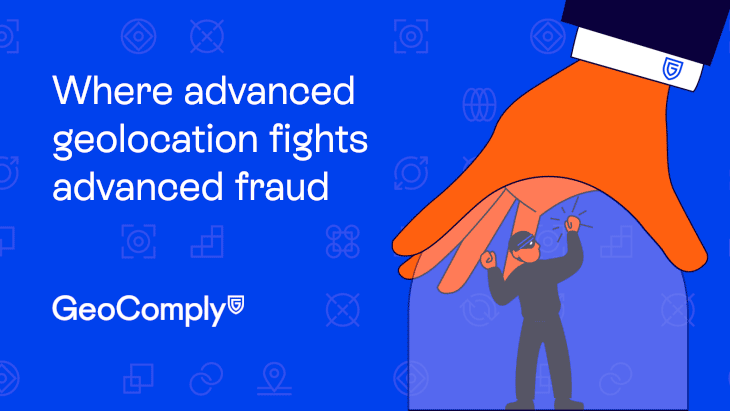See You At The Crossroads
Will sweepstakes be the next big thing or the next flash in the pan? That will depend on how the industry navigates the current political and legal headwinds.
Sweepstakes, referred to as “social gaming” or “promotional games” by supporters and “gambling by another name” by its opponents, are fighting for legitimacy as they navigate a complex legal and regulatory landscape.
With prohibition efforts afoot in a dozen states and two competing trade groups making the case, the sweepstakes sector is at a crossroads, with its future hinging on its ability to navigate political and legal headwinds.
SPONSOR’S MESSAGE: GeoComply: Where advanced geolocation fights advanced fraud.
Gone are the days when detecting IP spoofs and blocking VPN use is enough to tick the “fraud prevention” box. Not when cybercriminals are using state-of-the-art tech and stolen identities to exploit iGaming operators through bonus abuse and fraudulent chargebacks (often to the tune of six to seven figures a month).
These aggressive attacks require forceful solutions. GeoComply’s Risk Research and Data Science teams have been using machine learning and adaptive intelligence to identify fraudsters masquerading as “real” players, immobilizing them before they can get away with stolen funds.
Visit the GeoComply booth #A160 at the Canadian Gaming Summit next month, or book a demo to schedule a deep dive today.
A Regulatory Tightrope
Sweepstakes sites have been leveraging their "no purchase necessary to win" model (where players can enter for free or gain entries by purchasing virtual currency like Sweeps Coins) to sidestep gambling laws in many US states. This structure, rooted in promotional campaigns like McDonald’s Monopoly, allows operators to offer cash prizes without requiring players to wager money directly. Instead, players can enter for free or purchase virtual currency that comes with bonus sweepstakes entries.
It’s a clever workaround, but one that’s losing ground in some jurisdictions.
Critics would argue that rather than being clever, sweepstakes exploit legal loopholes, functioning as unregulated gambling that fuels addiction and fraud. They contend the “no purchase necessary” model is a facade, and that the real-money prizes are the heart of the offerings, with operators incentivizing purchases and targeting vulnerable players without adequate consumer protections.
Anti-sweepstakes bills have been filed in 12 states, and while the industry avoided prohibitive legislation in four states, it’s losing ground in others.
Montana [PASSED]: SB 555 prohibits “online casinos, by whatever name known… This includes but is not limited to any platform, website, or application that knowingly transmits or receives gambling information, allows consumers to place a bet or wager using any form of currency, and makes payouts of any form of currency.” STTP coverage of the bill’s ambiguous language here.
Nevada [AWAITING GOVERNOR’S SIGNATURE]: While not specifically about sweepstakes, SB 256 gives the state an enforcement mechanism against “illegal gambling.” Companies found violating the law would forfeit all profits, gains, gross receipts, or other benefits relating to illegal gaming activities. It also increases criminal penalties and extends liability outside Nevada’s borders.
Connecticut [PASSED SENATE]: SB 1235 would ban sweepstakes. The bill initially included a ban on lottery couriers, but that was stripped out when it passed the Senate. It is now awaiting a vote in the House.
Louisiana [PASSED SENATE]: SB 181 would prohibit sweepstakes sites. It has passed the Senate and can now be heard on the House floor after clearing the Louisiana House Committee on Administration of Criminal Justice — the bill is scheduleed for floor debate on June 2.
New Jersey [ACTIVE]: A 5196 initially sought to legalize and regulate sweepstakes as online gambling operators. That effort has been replaced by A 5447, which would “prohibit sweepstakes model of wagering.” The bill has passed the Assembly Tourism, Gaming, and the Arts Committee.
New York [ACTIVE]: New York has two sweepstakes prohibition bills. S 5935, sponsored by State Sen. Joseph Addabbo Jr., and a companion bill, AB 6475, in the House (it has passed the Codes Committee and awaits action in Ways and Means). Addabbo’s bill has passed the Senate Racing, Gaming and Wagering Committee and can now be heard on the Senate floor.
Illinois [ACTIVE]: A pair of bills in Illinois would prohibit online sweepstakes. SB 1705, sponsored by Sen. Bill Cunningham, would ban online sweepstakes. The second bill, Rep. Bob Rita’s HB 2879, also targets illegal gaming.
Ohio [ACTIVE]: One of Ohio’s online casino legalization bills, HB 298, sponsored by House Finance Committee Chair Brian Stewart, includes a prohibition on sweepstakes casinos.
Mississippi [FAILED]: SB 2510 would prohibit sweepstakes online gambling sites. Different versions of the bill passed the Senate and the House, with the House adding language authorizing mobile sports betting, which led to a conference committee where the legislation ultimately died.
Maryland [FAILED]: SB 860 “proposes the license denial and/or license revocation of any person or entity that supports or promotes the operation of online sweepstakes games,” including suppliers and affiliates. After unanimously passing the Senate, it died in the House.
Florida [FAILED]: Legislation in Florida would have extended the state’s prohibition on gambling to include online betting. SB 1404 and HB 953 broadly defined internet gambling and covered operators, vendors, suppliers, payment processors, and media affiliates in what appears to be an effort to cover sweepstakes gambling sites. After passing a couple of committees, the legislation died.
Arkansas [FAILED]: HB1861 sought to legalize online casinos while also prohibiting sweepstakes. The sponsor eventually pulled the bill.
Two Trade Groups, One Goal
The sweepstakes industry’s push for legitimacy is complicated by a split in its advocacy efforts, with the emergence of two trade groups:
Both groups share the goal of securing a stable regulatory framework, but their priorities and philosophies reflect the broader identity crisis within the industry.
Keep reading with a 7-day free trial
Subscribe to Straight to the Point to keep reading this post and get 7 days of free access to the full post archives.




